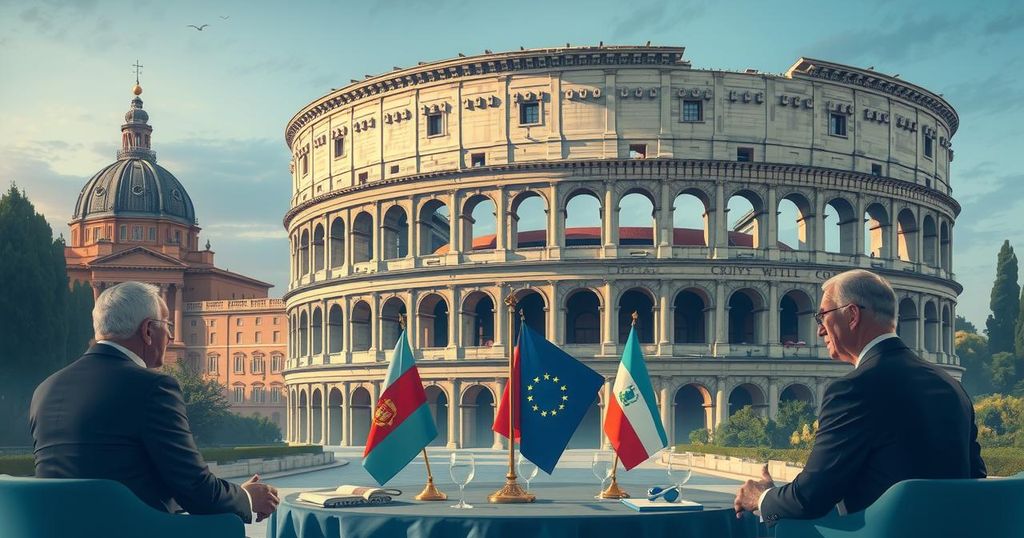U.S. and Iran engage in nuclear talks in Rome over uranium enrichment; Iran seeks civilian use while U.S. aims to prevent weapon development. The discussion continues amidst skepticism and threats of military action if negotiations fail. Next steps will shift to respective capitals.
Negotiations between the United States and Iran are currently unfolding in Rome, focusing on Iran’s nuclear program. While Iran asserts that its uranium enrichment is intended solely for civilian use, U.S. officials express concerns about the potential for secret nuclear weapons production. As discussions progress, some reports indicate the White House might be advocating for a complete ban on Iran’s nuclear pursuits, a proposal rejected by Iran’s Supreme Leader, Ayatollah Ali Khamenei.
These discussions, the fifth set of talks to date, included U.S. special envoy to the Middle East, Steve Witkoff, lasting two hours, and have been termed constructive. However, leaders involved have acknowledged that substantial efforts are still necessary. After Rome, negotiations are expected to shift to Washington D.C. and Tehran.
The longstanding tension between Iran and the U.S. dates back to 1979 when the Iranian revolution installed a government mistrusted by the U.S. Over the years, Iran has shown a pattern of nuclear development, both publicly and secretly, which has often triggered diplomatic efforts. In 2002, the existence of covert nuclear facilities in Iran was revealed, leading to heightened scrutiny.
In 2015, during negotiations with the Obama administration, Iran agreed to curb its nuclear activities in exchange for lifted sanctions. Many, however, remained skeptical about Iran’s sincerity, particularly given its ties to militant organizations. In 2018, President Trump withdrew from the agreement, claiming Iran’s lack of transparency and insufficient restrictions on weapons development warranted renewed economic sanctions.
Currently, the U.S. is pushing for an agreement that explicitly prevents Iran from developing nuclear weapons. Iranian Foreign Minister Abbas Araghchi made a strong statement on social media about the negotiations, asserting, “Zero nuclear weapons = we Do have a deal. Zero enrichment = we do NOT have a deal. Time to decide.”
Should these talks collapse, implications could be severe. Israel has hinted at a willingness to strike Iran’s nuclear facilities as a means to impede weapon development. President Trump has previously indicated his preference for a diplomatic resolution but has left the door open for military action if necessary. White House spokesperson Karoline Leavitt emphasized that the ongoing negotiations are progressing in a positive direction.
As these discussions unfold, the world watches closely, aware that they could reshape the geopolitical landscape in the Middle East significantly. The stakes are high for both nations, with each side holding firm to its positions on nuclear capabilities and regional influence.
Current negotiations in Rome between the U.S. and Iran are critical as both nations grapple with the complex issues surrounding nuclear enrichment. With Iran’s Supreme Leader dismissing potential U.S. demands for a ban on uranium enrichment and the threat of military action should talks falter, the future of this diplomatic engagement remains uncertain. The outcome of these discussions could have significant ramifications for international stability and regional security.
Original Source: www.deseret.com






